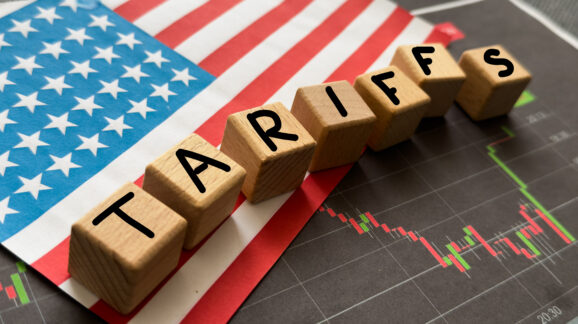America targets Korea with illegal tariffs, strengthens China

Photo Credit: Getty
President Donald Trump is in the process of imposing a 25 percent tariff rate on South Korean and Japanese imports to the United States. This policy violates trade agreements and undermines the US’s strategic interests in the region.
How do these tariffs harm President Trump’s security goals? By making China a more appealing ally to these nations, thus increasing its global influence. The United States shouldn’t be worried about its trade deficit with its East Asian allies, but rather with their overwhelming trade dependency on China.
China is the top trading partner of South Korea and Japan, for 22.79 percent and 19.36 percent of their total trade volumes, respectively. The United States would benefit if both nations reduced their trade dependence on China. This would decrease China’s ability to leverage trade for its political aims.
In the past, when the US military attempted to place its Terminal High-Altitude Area Defense system (THAAD) in 2017 on Korean soil, China used this leverage. It retaliated by suspending its tourism in South Korea and destroying a Korean corporation’s business operations in China. This boosted an anti-US-involvement movement in Korea.
Current South Korean President Lee Jae-Myung departs from his predecessor’s pro-US stance by promoting a more “national interest first” approach. Trump’s threatened tariffs would only further fray our strategic alliances against China.
Legally, a 25 percent tariff on South Korea violates the Korea-United States Free Trade Agreement (KORUS FTA), a treaty that forms a binding part of US law. Even with President Trump’s 2018 amendments, the agreement is supposed to eliminate 95 percent of trade barriers alongside bilaterally promoting other free trade measures. Article 24.5 states that the terms of the agreement can be terminated only after an 180-day notification in advance, which does not appear to have been forthcoming from the White House.
Domestically, the US economy gains nothing from these tariffs. American manufacturing is near its all-time high. Uncertainty about trade policy creates market volatility. Tariff implementation hurts American businesses through increased intermediate goods costs. And my colleague Nadav Sternheim points out that consumers are harmed too, through increased prices at the checkout counter.
Predictably, South Korea is countering American economic populism with its own domestic populism. To ease the burdens of tariff hikes and to counter South Korea’s economic slowdown, President Lee is pursuing an expansionary fiscal policy. His “hotel economics” provides stimulus vouchers to people in hopes of lifting Korea out of its economic slump. The national assembly recently approved a $23.32 billion stimulus package.
Many Koreans are skeptical of Lee’s policies. They question the inflationary risks, while noting that this short-term stimulus fails to properly address the root causes of economic slowdown, including demographic challenges. Americans should be familiar with this, as the CARES Act during the COVID-19 pandemic distributed nearly $1 trillion in federal aid as transfer payments, with negligible economic benefits.
The Trump administration should take a wiser approach and pull back from alienating allies with the imposition of tariffs. Representatives should encourage him to do the right thing, and failing that, repeal some of the tariff-making powers that Congress has loaned to the executive branch.
For their part, South Koreans should remember that their economic success has been primarily led by private-sector developments, not short-term stimulus.
In fact, a return to economic liberalism would better serve both countries’ long-term prosperity.